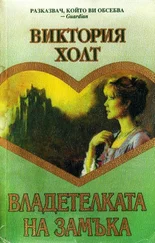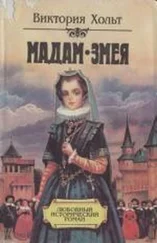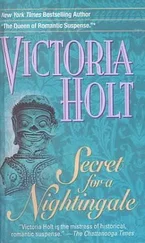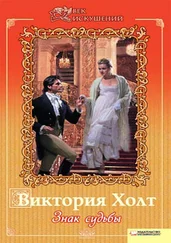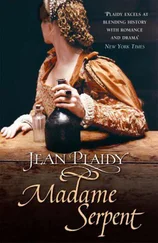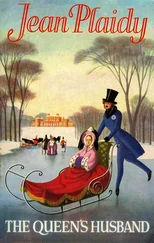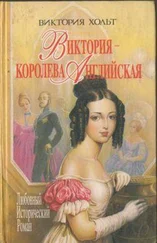“Then, Jane, you are clever, for if more understood the intentions behind men's words, the world would be a happier place, and it is those who achieve happiness and lead others to it who are the clever ones of this world.”
Then she had told him how astonished she was that he, who was so much cleverer than others, should not frighten her so much; and that he, who had friends among the most learned of men, should know more than others how to be kind to a simple maid.
After that she would give him her quiet smile, and he would see the pleasure in her face when he spoke to her.
Others had noticed his friendship with Jane; and one day, when he had arrived at New Hall, it was to find that young Mistress Colt had gone away, and, with a sudden shock, he realized that he was expected to marry Jane.
To marry Jane! But it was merely a tender pity that he felt for her. It was her gay, tantalizing sister who had shown him that a monk's life was not for him.
His first impulse had been to ride away or explain his feelings to Master Colt.
Her father might have guessed his reluctance. He said: “Jane is a good girl. The best in the world. The man who married her would get a good wife.”
Master Colt was not a subtle man; but if Thomas More was not moved by the desire of a country gentleman to get his daughter off his hands, he was deeply touched by the mute appeal of Jane.
He saw at once what he had done. With his kindness he had sown seeds of hope. Jane had a new gown; Jane had won the respect of her family, for which she had always longed, because they believed that a man wished to make Jane his wife.
What could he do? Could he ride away and never return to New Hall? Could he still ask for the hand of the girl with whom he had fallen in love?
And what of Jane? Meek and mild she was; but it was those of her temperament who suffered most cruelly. And her sister—what of her? But she was a gay spirit and there would be so many to admire her. She was very young, and he doubted whether she had ever thought very seriously about one who would seem elderly to her.
If he hurt Jane, if he wounded her pride, if he was responsible for bringing upon her her family's scorn, how could he forgive himself? He had meant to make her life easier. Could it be that in his blind folly, he had made it harder for her to bear?
Being the man he was, he saw only one course open to him. He must turn tenderness into love; he must marry Jane. He must turn her into a woman such as he wished to have for his wife. Why should it not be so? She had been a docile daughter; she would be a docile wife. So he removed the girl he loved from the picture of domestic bliss and set Jane there in her place. He saw pleasant evenings when they would sit over their books while he talked to her in the Latin tongue. And after Latin … Greek.
And so, as Thomas More came into the garden to speak to Jane, he was picturing the future … their happy home, their children and his learned friends … all merry together.
“Why, Jane,” he said, “we saw you through the window and your father bade me join you.”
“You are welcome,” she answered with her quiet smile.
And in the garden, with the hot sun upon him and the girl beside him, her eyes downcast, there came to him a reminder that he had not yet spoken those words which would make it impossible for him to turn back. Suddenly he thought of the quiet of the Charterhouse, of those years when he had lived with the Carthusian monks, and he longed to be back with them. He wanted another chance to think, to brood on this matter, to talk it over with his friends.
But because he was silent so long, she had lifted her eyes to his face; she had been looking at him for some seconds in anxious bewilderment before he realized this.
How young she was! How pathetic! How could he leave her to the mercy of her family? Dear Jane! He guessed what her life would be if he rode away now. Her sisters would taunt her; the whole family would let her see that she had failed; she would become Jane-of-no-account, in very truth.
Life was unfair to such women.
Pity colored all his thoughts. It was ever so. When he saw the poor in the streets he could never resist giving alms. His friends said: “The word goes round among the beggars: ‘Thomas More comes this way!’ And they uncover their sores, and some feign blindness. Make sure that in enriching the beggars you do not beggar yourself” And he had answered: “There may be some who are not so poor as they would seem to be; there may be some who feign distress to win my pity and with it money from my pocket. But, my friends, I would rather be the victim of a rogue than that any man should be the victim of my indifference to his suffering.”
Pity. Sweet Pity. A nobler emotion that passion or desire. Here then, he thought, is what I most desire: A happy home. And cannot Jane give me that?
“Jane,” he said, “I want you to be my wife.”
She stared down at the flowers in her basket.
“What say you, Jane?” he asked tenderly.
“My father wishes it.”
“He does. And you?”
She smiled slowly. “I shall try to be a good wife to you.”
He kissed her tenderly; and she thought: There will be less to fear with him than with anyone else, for he is the kindest man in the world.
“Then come. Let us go into the house and tell your father that you have consented to become my wife.”
They went into the hall, where the servants were now carrying in the dishes. Thomas was amused by the ceremony which was paid to the food.
“I was about to ask you to salute a new son,” he said to his host, “but I see that he must keep his place until His Majesty the Ox hath been received.”
And only when the great side of beef was set on the table was Master Colt ready to embrace Thomas. Then, taking him to the head of the table, he proclaimed to those assembled there that his daughter Jane was betrothed to Thomas More.
* * *
JANE WAS sitting at the window of her new home, which was called The Barge, looking out along Bucklersbury, thinking that she must be the most unhappy woman in the world. But then, Jane's knowledge of the world was slight.
The Barge! She hated it. It was a foolish name to give a gloomy old house. “The Barge,” Thomas had explained, “will be our home. Why ‘The Barge’? you may ask. It is because in the days before the Walbrook was covered, the barges came right to this spot. Oh, Jane, we will wander through the City and we will picture it as it was in days gone by. Then you will see what a wonderful old City it is, and you will love it as I do—more than any other place in the world.”
But Jane could not love it. She could love no place but New Hall. She longed for her garden, for the quiet fields of buttercups and marguerites; she hated this great City with its shops and crowds of noisy people. All through the day she could hear the shouts of traders in the Poultry and the Chepe; she could smell the meats being roasted in the cook shops, and the scents from the apothecaries' of which there were so many in Bucklersbury; the scent of musk mingled with that of spices from the pepperers' and grocers' shops; and she was homesick … homesick for New Hall and the single life.
She wept a good deal. Often Thomas would look in dismay at her reddened eyelids; but when he asked what ailed her, she would shrink from him. She had not imagined that married life was like this, and she could not understand why so many people longed for it. Why did they think a girl had failed if she did not achieve it?
She had married a man whose heart was in books. In London he seemed older than he had in the country. Men came to the house; they were older even than her husband; and she would sit listening to their talk without understanding anything they said.
Читать дальше

